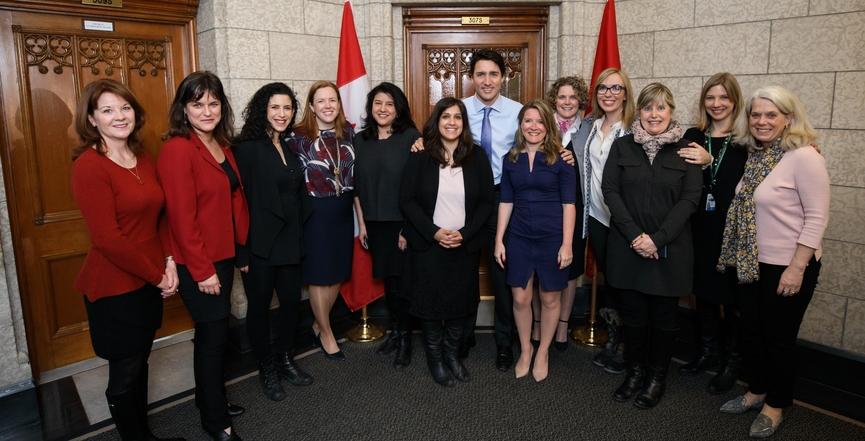Sunday, March 8, is International Women’s Day, a time to celebrate advances in women’s rights and protest ongoing abuses experienced by women, girls, transgender, and non-binary people around the world.
A fresh new session of Parliament has begun in Ottawa, and rather than reflect on the past year, I’m reflecting on the previous Parliament’s record on women’s rights.
Prime Minister Justin Trudeau proclaimed himself a feminist, because after all, it was 2015. His government mandated gender-based analysis plus on all cabinet decisions and the federal budget. They supported the National Inquiry into Missing and Murdered Indigenous Women and Girls. Canada developed a Feminist International Assistance Policy as well as the National Action Plan on Women, Peace and Security, hosted the Women Deliver conference last year, and prioritized women’s rights during its G7 presidency.
The taps were finally turned on to support cash-starved projects to end gender-based violence, support the realization of sexual and reproductive rights, and fund grassroots women’s organizations and movements. And, to top it all off, then-foreign affairs minister Chrystia Freeland spoke publicly of Canada’s feminist foreign policy. These are some highlights and nowhere near an exhaustive list of all the women’s rights accomplishments in Trudeau’s first mandate.
Coming out of a very dark decade, these were heady, happy times. Finally, the word “feminist” opened rather than shuttered the doors of government. At long last we could start speaking fluently in the language of power structures and systemic discrimination with bureaucrats and their political masters. We were able to meaningfully engage on how to truly move forward on ending gender-based discrimination and violence.
For too long, Canada had failed to address gender inequalities, and the changes made by government were long overdue and much needed. Trudeau’s first mandate was about putting in place the government machinery needed to address gender inequalities. It was about making the F word (feminist, in case you weren’t sure) a word that you could say loudly and proudly. And it was about getting the ball rolling and turning the tide on what had become a backslide on women’s rights in Canada.
But did government actions save lives and prevent women from experiencing violence and harassment? Did they have an impact on the lives of the most marginalized women, girls, transgender and non-binary people in Canada and around the world?
In December 2018, Trudeau’s feminist government did not prevent a 30-year-old Indigenous woman in Moose Jaw, Saskatchewan, who was about to give birth, from being pressured by a doctor to sign a consent form for a tubal ligation.
It did not lower the rate of Indigenous women, girls and two-spirit people who went missing or were murdered from the rate pre-national inquiry.
It did not provide sexual assault centres experiencing a record number of calls in the wake of the #MeToo movement with the level of funding needed to meet demands.
It did not prevent the murder of Honduran women human rights defender Berta Cáceres in March 2016, or the deaths or imprisonment of so many other courageous women’s rights activists around the world, including Loujain al-Hathloul in Saudi Arabia.
I’m not asking Trudeau or the government of Canada to be held personally responsible for every single act of gender-based discrimination and violence in Canada or around the world. But I’m counting on the Trudeau government’s second mandate to be focused on real, concrete, human impacts.
I will judge the success of this Parliament by how their actions concretely and positively impact the most marginalized women, girls, transgender and non-binary people.
Success must look like measurable actions to end all forms of gender-based violence, with a particular focus on ending violence against Indigenous women, girls and two-spirit people.
Success must look like Indigenous women being able to give birth in a facility of their choosing, with practitioners of their choosing, with no fear that they will be forced or coerced into sterilization.
Success must look like Canada’s foreign, trade, defense and development assistance policies being harmonized under one coherent and transparent truly feminist foreign policy.
And success must look like women’s rights activists facing grave risks being able to access meaningful support from Canada’s missions abroad.
It’s often said that people are judged by their actions, not their intentions. Trudeau’s lasting legacy must not be his desire to advance women’s rights. His legacy must be that he truly succeeded in advancing women’s rights and gender equality.
Jackie Hansen is the gender rights campaigner with Amnesty International Canada. She is based in Ottawa.
Image: Justin Trudeau/Twitter



